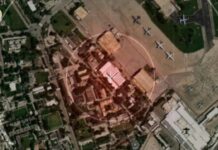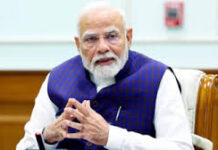Column
By Major Gwahram Baloch
The Baloch national liberation struggle is a collective aspiration of the Baloch nation, a defensive struggle aimed at breaking free from subjugation and achieving the right to self-determination and freedom.
The ongoing struggle for national freedom in Balochistan is purely a local and historical resistance movement.
This liberation movement has been continuous for the past seventy-seven years. We, the Baloch, have repeatedly appealed to global powers, highlighting that Pakistan is essentially a state that fosters terrorism and supports terrorist activities.
We have urged the international community to intervene in the Baloch-Pakistan conflict and provide moral, diplomatic, and financial support to the Baloch national liberation movement.
Regrettably, the world’s most powerful nation, the United States—a champion of freedom and democracy—has taken an unjust step by deciding to enter into agreements with Pakistan regarding the exploitation of Balochistan’s valuable mineral resources.
This is not unprecedented. Earlier, China also signed agreements over the Gwadar deep-sea port, the China-Pakistan Economic Corridor, and the looting of Baloch resources, all of which are being strongly resisted by the Baloch.
China has branded the Baloch nation as terrorists and their freedom movement as terrorism to cover up its colonial ambitions.
The truth, however, is that the Baloch are not terrorists—they are freedom fighters resisting to protect their homeland and resources.
Our national survival, identity, and freedom are far more important than the opinions of others. From our perspective, America’s decision represents a grave injustice.
The Baloch national liberation struggle is not about occupying another nation’s land or resources, nor about asserting any rights over others. It is a defensive struggle born of the collective will of the Baloch nation to attain freedom, self-determination, and liberation from oppression.
Pakistan’s military generals may outwardly present themselves as allies of the United States, but the reality is starkly different.
The United States is well aware that Pakistan is habitual in duplicity and hypocrisy. In 2018, then-President Donald Trump openly criticized Pakistan for its double-dealing and suspended aid.
Today, the same duplicity is evident as Pakistan’s Army Chief, General Asim Munir, has submitted files regarding Balochistan’s mineral and natural wealth to the United States.
We have repeatedly stated that whoever comes to Balochistan, we will protect our minerals, resources, oil, gas, and coastlines.
Any power that intervenes and becomes complicit in looting Balochistan’s resources will find itself trapped in a quagmire—the same fate China is experiencing with its failed ambitions in Gwadar and the CPEC.
Statements by Dr. Malik confirm that the Gwadar airport was built for military purposes, yet, despite years of efforts, China has failed to achieve its objectives due to Baloch resistance.
We earnestly appeal to the rulers of Saudi Arabia and the United Arab Emirates not to invest in Balochistan or harass the Baloch people.
While your friendship with Punjab is only seventy-eight years old, our relations with your peoples are rooted in thousands of years of history—do not harm this bond.
The Baloch nation seeks support, aid, and financial or military assistance from neighboring countries, global powers, and the international community in its struggle for national freedom.
Yet, we require no one’s permission to decide when this struggle begins or ends.
Today, Balochistan is witnessing an organized genocide: entire families have been brutally massacred, shepherds slaughtered, civilians forced into labor at military camps, and teachers, scholars, and students abducted from universities.
Most recently, a journalist and eleven of his relatives, including children, were killed for no reason other than being Baloch. Balochistan has become a full-scale conflict zone.
We, once again, appeal to global powers to intervene and stop Punjabi state terrorism in Balochistan.
If intervention is not possible, at the very least, do not become partners in plundering Balochistan’s resources. Those who do will bear responsibility for the consequences.
We address the world—especially the United States, United Kingdom, France, Germany, and China—and remind them: this is not Japan, Ireland, or any other region. This is Balochistan. Its geography may be harsh, but the Baloch resistance is even harsher.
We call upon all parties to come forward for a resolution to the Baloch issue. But remember: the Baloch issue is not an internal matter of Pakistan.
(Note: Major Gwahram Baloch is the Spokesperson of Balochistan Liberation Front (BLF) which is a frontline armed organisation fighting for liberation of Balochistan from Pakistan.








